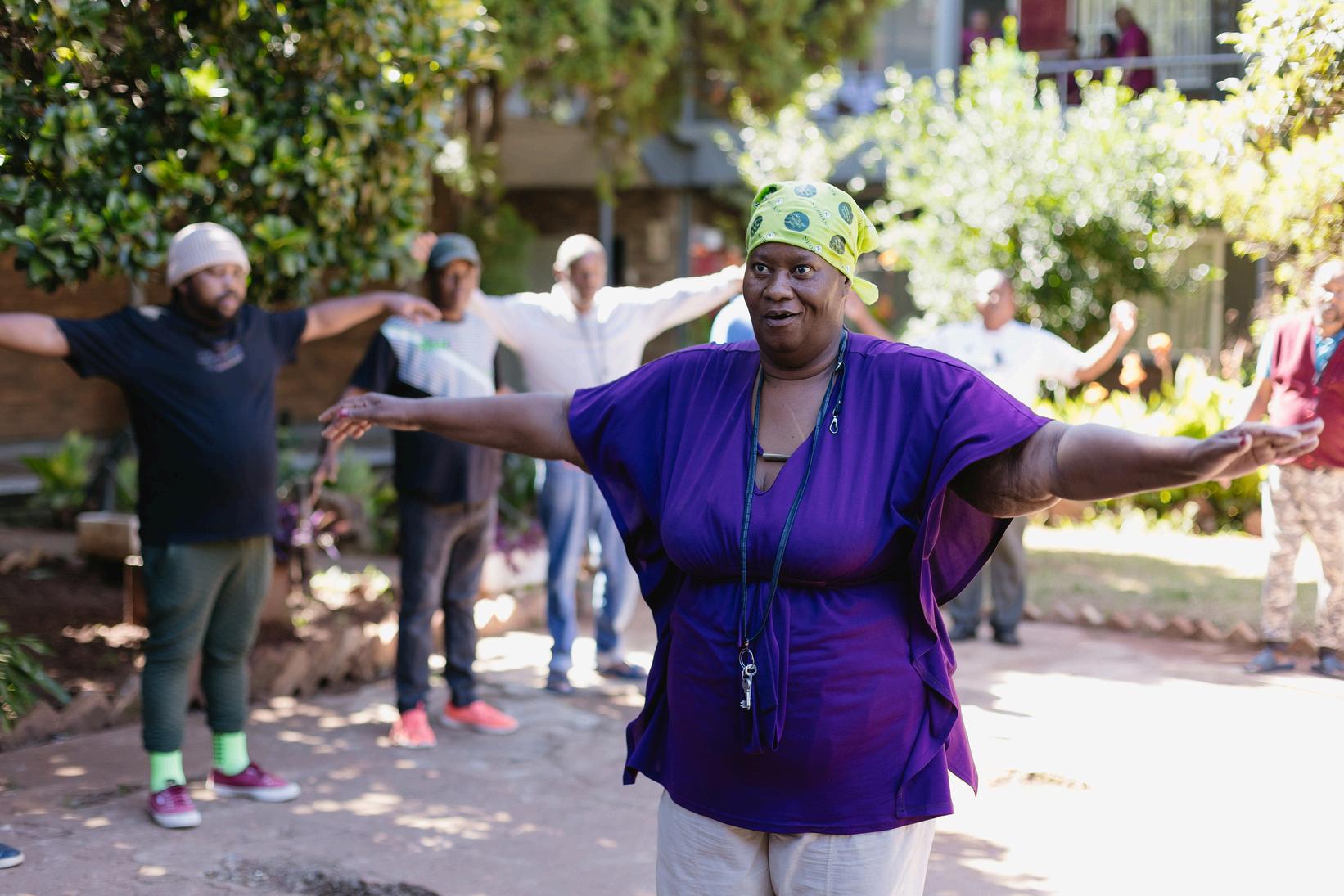“ADDRESSING VIOLENCEASA CHALLENGETOMENTAL HEALTHINSOUTH AFRICA”
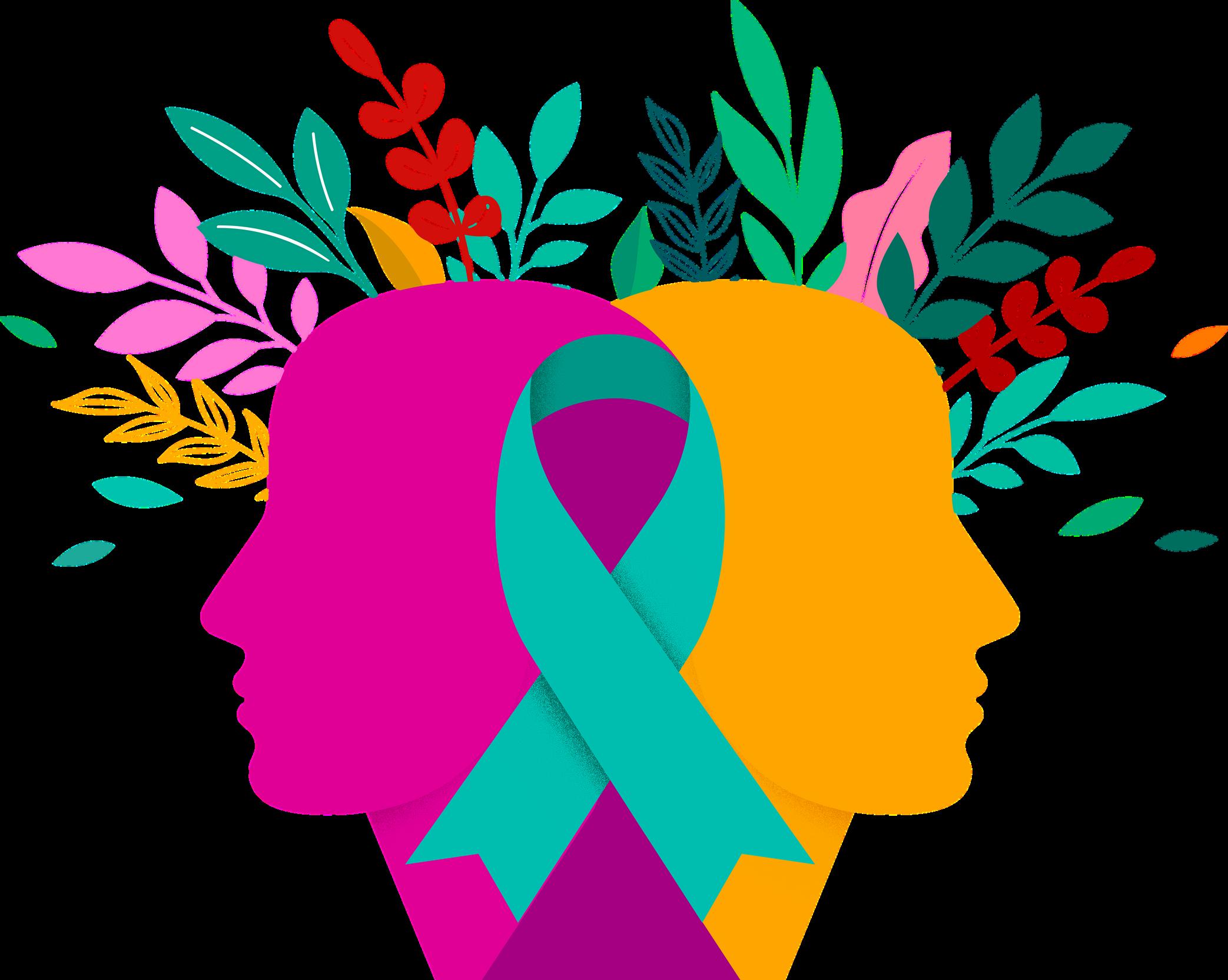
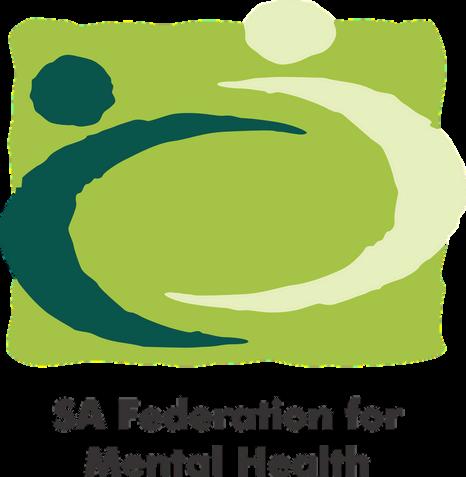



VIOLENCECRIMEAND MENTALHEALTH
ACCESSTOMENTAL HEALTHSERVICES
ACCESSTOMENTAL HEALTHSERVICES
CONNECTINGTHE DOTS
OURCALLTO ACTION
INTRODUCTION
VIOLENCEIN
POVERTYAND
Pleasenote thattheimages usedinthis documentare fromtheSA PositiveMental HealthPhoto Library.
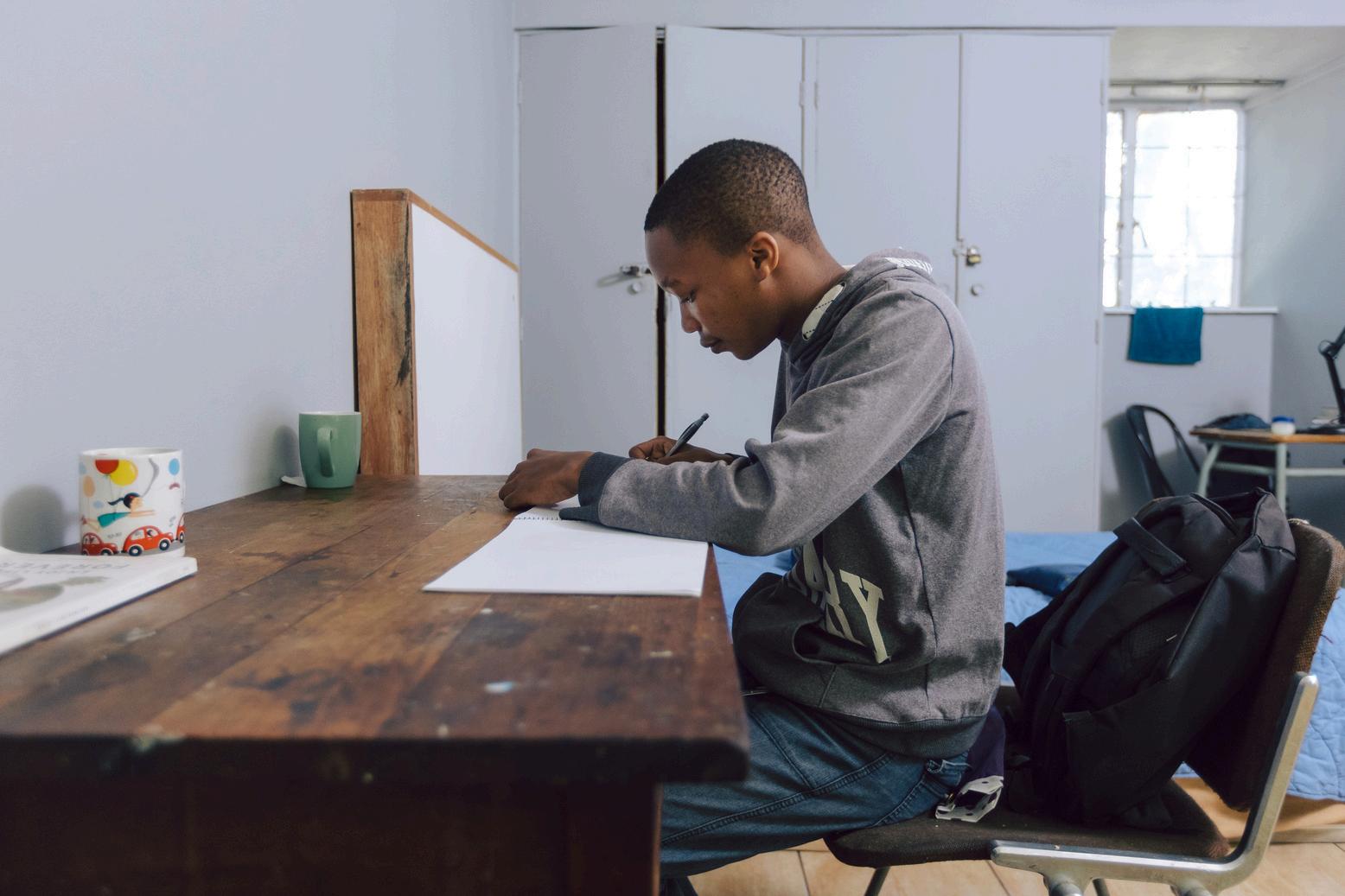
October is commemorated annually as World Mental Health Month, with the 10th of October being World Mental Health Day.
For 2025, the World Federation for Mental Health chose the theme: “Access to Services: Mental Health in Catastrophes and Emergencies”. The SA Federation for Mental Health (SAFMH) has localised the theme and will be focusing on “Addressing violence as a significant challenge to mental health in South Africa”.
Gender-based violence (GBV), poverty and crime are the result of the enduring violence faced by the citizens of South Africa.
These socio-economic factors have been identified as an emergency in the South African context by SAFMH, the effects of which can have long-lasting consequences on a person’s mental health.
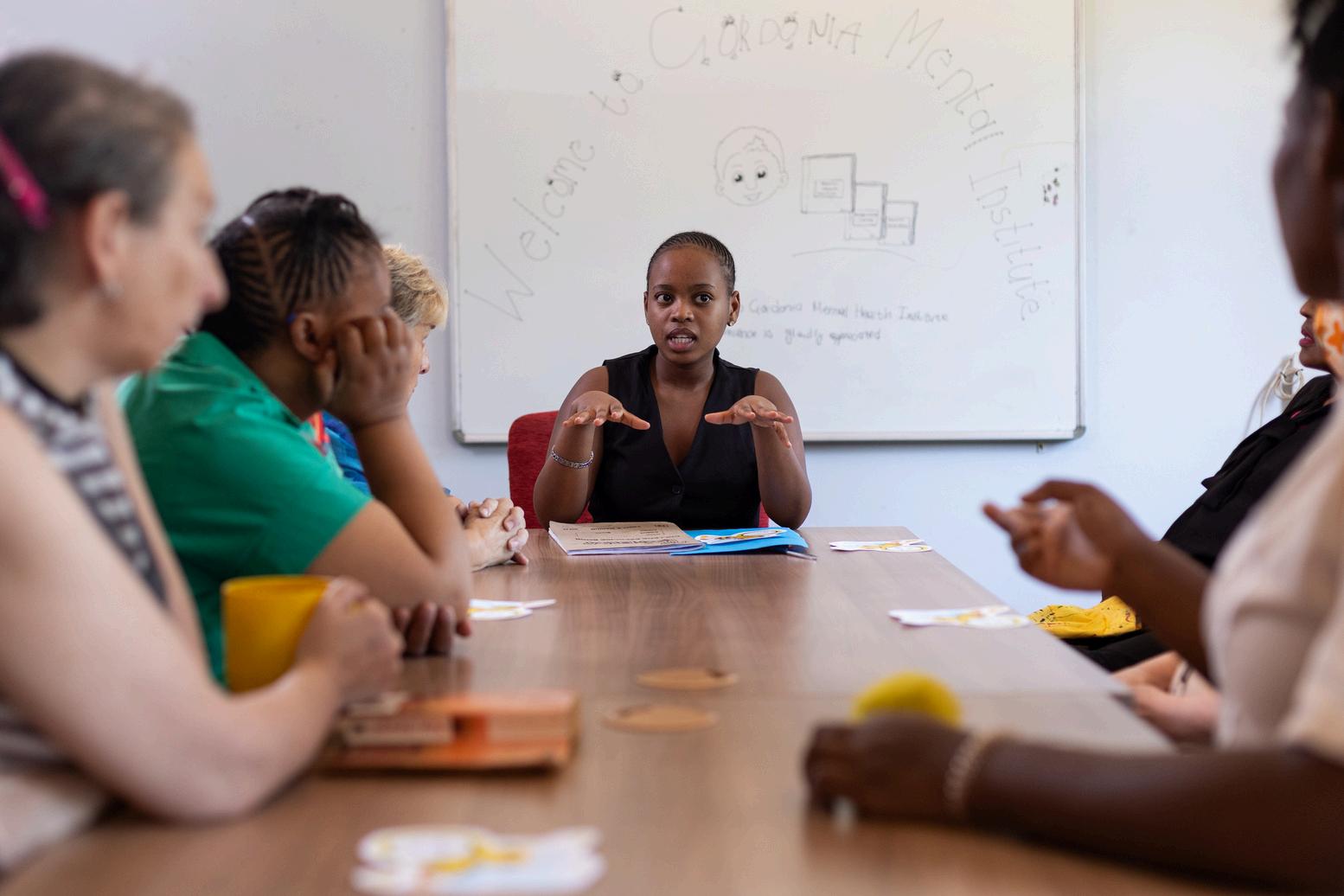
Despite new statistics showing a decrease in crime, South Africa continues to grapple with its historically violent past and the impacts it has on society today. In 2015, there were more than 18,000 homicides across the country, or 34 homicides per 100,000 people—the highest rates in all of Africa, and the sixth highest in the world.
5TH 10TH
R129 BILLION
Highest Crime Rate Globally Violent Countries in the World Annual Cost
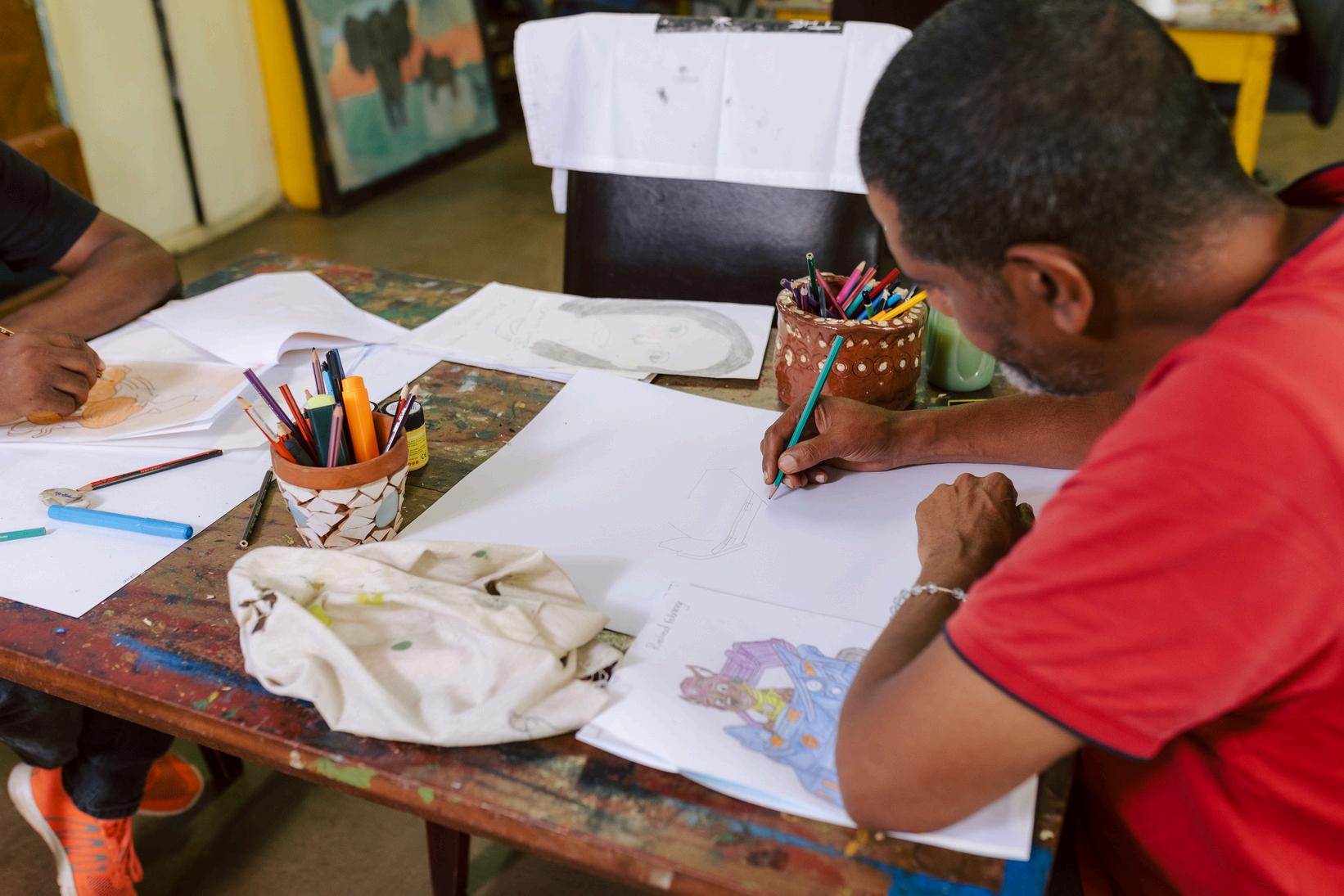
South Africans are exposed to various forms of violence. Research shows that there is no single cause for violence in South Africa.
In 2019, the Centre for the Study of Violent and Reconciliation identified several main drivers of violence, including:
Social and economic inequality
Gender inequality and traditional ideas of masculinity
A lack of strong, supportive communities
Easy access to alcohol and guns
These factors often overlap and intersect in different ways, often creating environments where the likelihood of violence is increased.
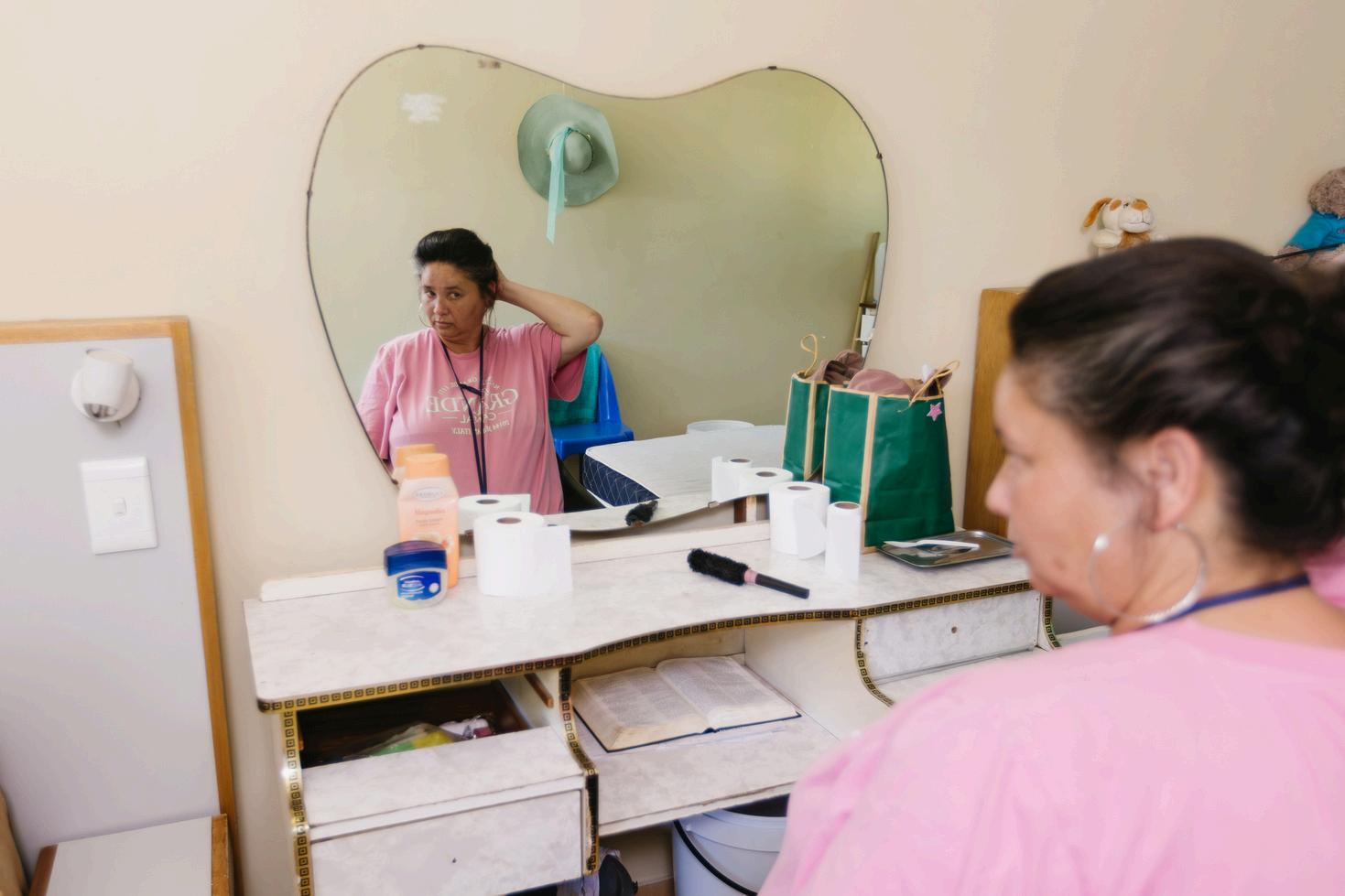
The National Strategic Plan on Gender-based violence (GBV) and Femicide reports that women and children who experienced GBV (including rape) are at higher risk of depression, anxiety disorders, post-traumatic stress disorder (PTSD), substance abuse, suicidal thoughts and attempts. The connection between GBV and mental health must be acknowledged and addressed.
Research has shown that survivors of GBV are vulnerable to developing a substance use disorder, and that there is a multidirectional relationship between GBV, mental health struggles, and substance use.
Studies point to the stigma that is often associated with both GBV and mental health, which becomes a barrier to survivors seeking help and accessing support.
33.1% 50%
South African women over the age of 18 had experienced physical violence in their lifetime.
Violent acts against women were committed by someone close to them (a friend, spouse, or household member).
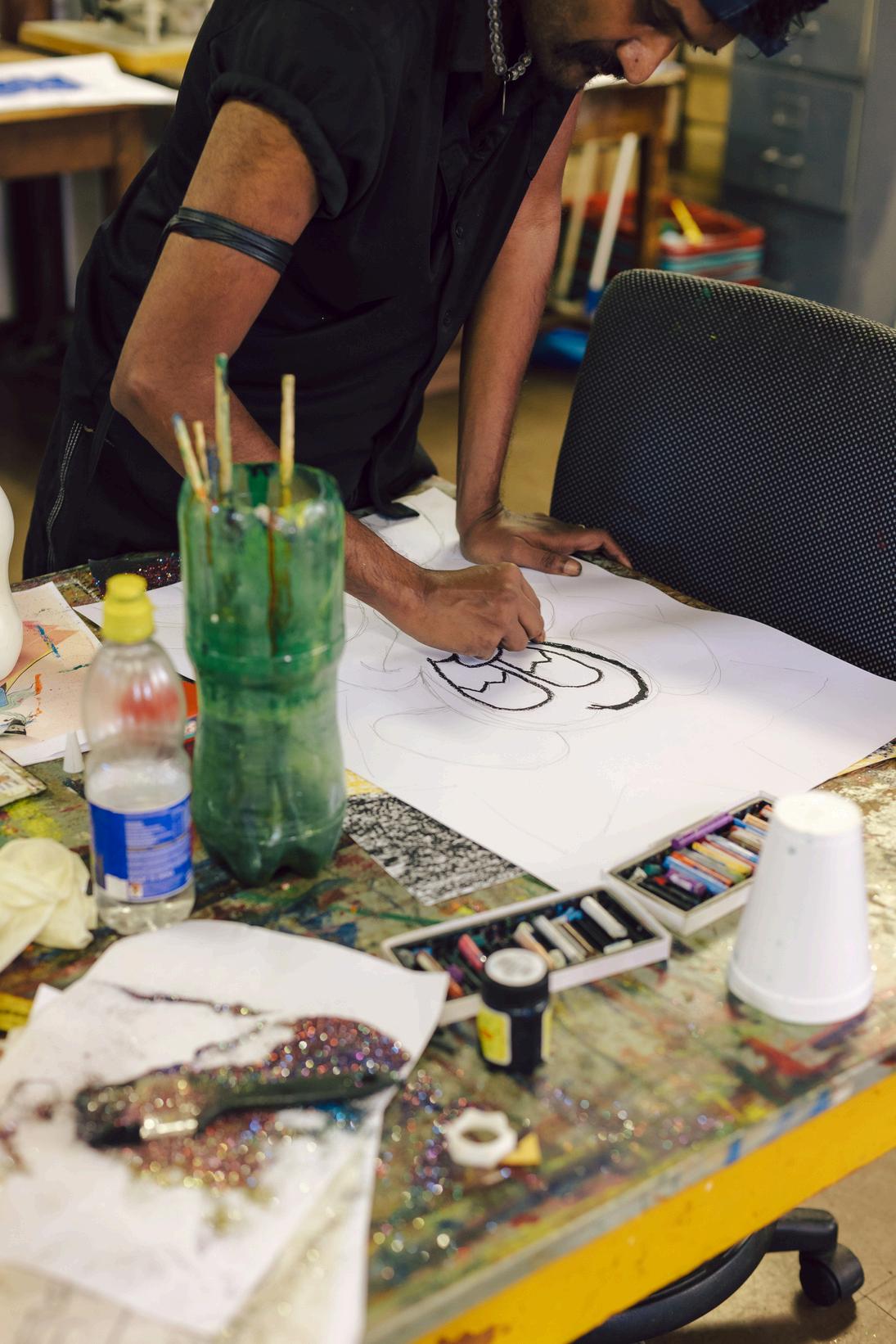
“Inasocietywherethemajority stilllivebelowthepovertyline, beingabletomaintaingood mentalhealthisfundamentalto endingthecycleofpoverty.”Adv.BonganiMajola,TheSA
Poverty is both a driver of mental health problems and a result thereof. Several studies have shown that poverty is a key determinant of children's social and behavioural development and adult mental health.
40%
62.1% ofthepopulation,havea combinedmonthlyexpenditure oflessthanR9,096. ofyoungpeople(6outof10)are multidimensionallypoor
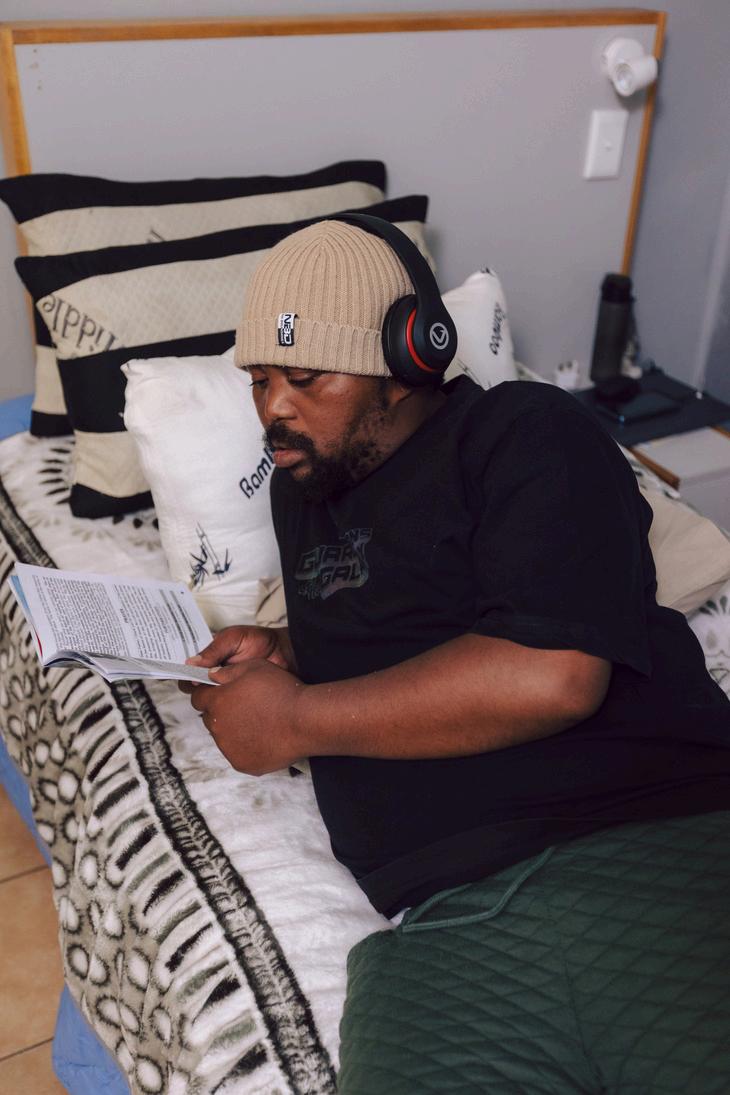
The 2024 South African Economic Update estimates that crime costs the economy at least 10% of its gross domestic product (GDP) each year
Crime-related disability-adjusted life years (DALYs) could account for as much as 7.8% of the country’s GDP, 2.6% of those due to health-related costs

Studies show that crime rates beyond just personal victimisation have a strong and measurable impact on mental health.
Living in high-crime areas increases the risk of depression, largely due to ongoing stress and fear.
WE NEEDINCREASEDINVESTMENTIN PREVENTATIVESOCIALPROGRAMMESTHAT FOCUSONREDUCINGTHERISKFACTORS FORVIOLENCE.
92%
treatment gap
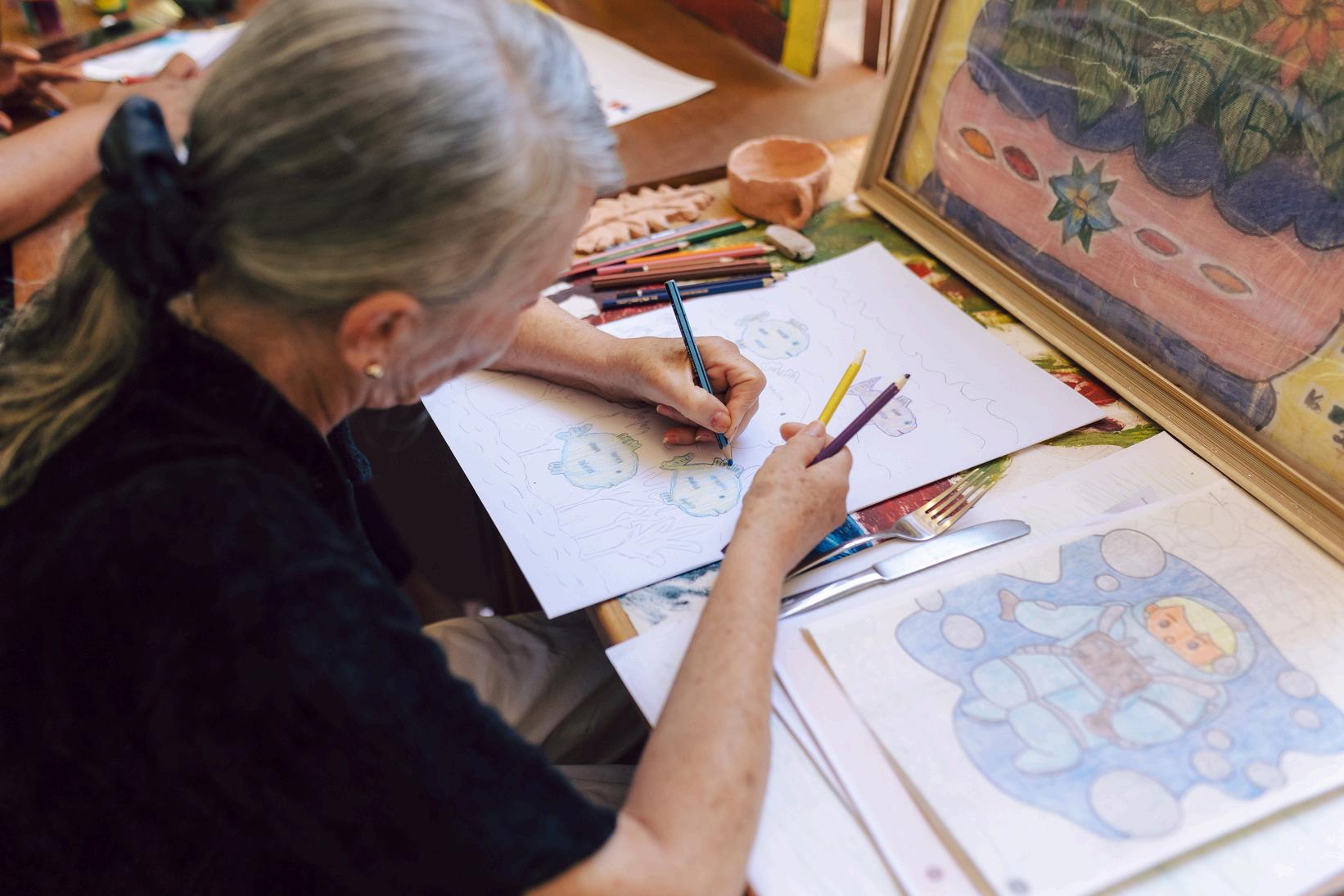
>1IN10
people living with a mental health condition in South Africa receive the care they need.
The primary and community-based mental health care system is both underfunded and under-resourced, meaning that people are not able to get the support that they need. ACCESSTOMENTALHEALTHCAREREMAINSA
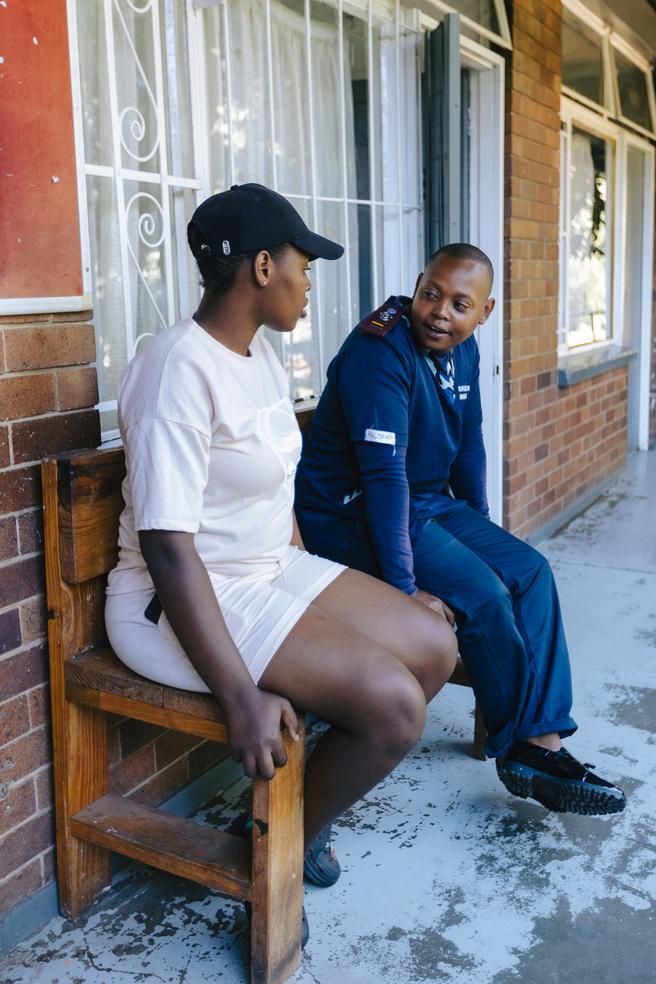
The current health budget allocation for mental health services in South Africa is highly inadequate for the country’s mental health needs.
The lack of funding has led to inadequate service quality nationwide, poor infrastructure, and staffing shortages.
5% of the national health budget is dedicated to the allocation of resources for mental health services.
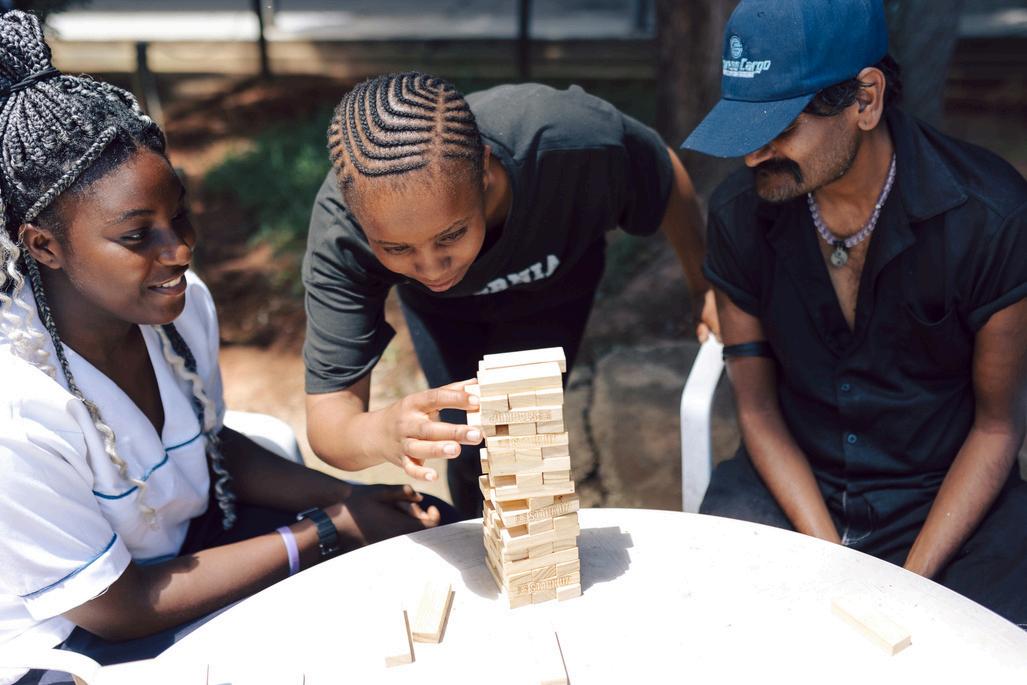
Research shows that the rates of mental health conditions are closely linked to the availability, accessibility, and affordability of mental health services
Mental health services are mostly provided through hospitals, which can be hard to access, especially for people in rural areas.
There is a strong connection between household socio-economic status and the risk of GBV, particularly intimate partner violence. Families affected by GBV are often located in high-crime areas, while GBV is also closely tied to poverty and development, with economic decline and rising poverty often leading to increased levels of violence.
It is clear that the violence faced by South Africans is a public health emergency. GBV, poverty and violent crime all impact significantly on mental health, and therefore all people affected should have equitable access to quality mental health services.
Mental health is recognised as a human right globally, and as such is protected by policies, treaties, and legislation in South Africa. However, despite such protections, too many people still do not receive the mental health care they need in South Africa, while mental health continues to be under-prioritised and underfunded.
Whilst SAFMH recognises that the National Mental Health Policy Framework and Strategic Plan (2023-2030) is in place, implementation is key to addressing the ongoing and compounded mental healthrelated emergencies South Africa continues to face.
Meaningful multisectoral collaboration between government departments and all other relevant stakeholders and roleplayers. This includes ensuring that responses to GBV, poverty, and crime are fully integrated into the relevant national strategic plans.
Government to acknowledge that violence is a public health emergency in the country, which significantly impacts on the mental health of all in South Africa.
Government to increase the budget for mental health, according to the investment case report from 2019, which showed that an estimated R223.7 billion would be required, with an average of R254 per capita per year (based on the 2019 population levels and currency rates) By 2035, such investment is likely to have significant, positive mental health impacts
A significantly larger proportion of South Africa’s mental health budget being invested into community-based mental health care, ensuring affordable access to mental health services, especially for people who face poverty.
Government to recognise persons with psychosocial and intellectual disabilities, along with the providers of communitybased mental health services, as worthy, competent, equal partners in the development, delivery and monitoring of mental health services.
An assessment of SAPS’s responses to GBV, along with an assessment of the psychosocial support provided to survivors of GBV by SAPS.
GBV shelters and services to ensure relevant and adequate mental health services are offered.
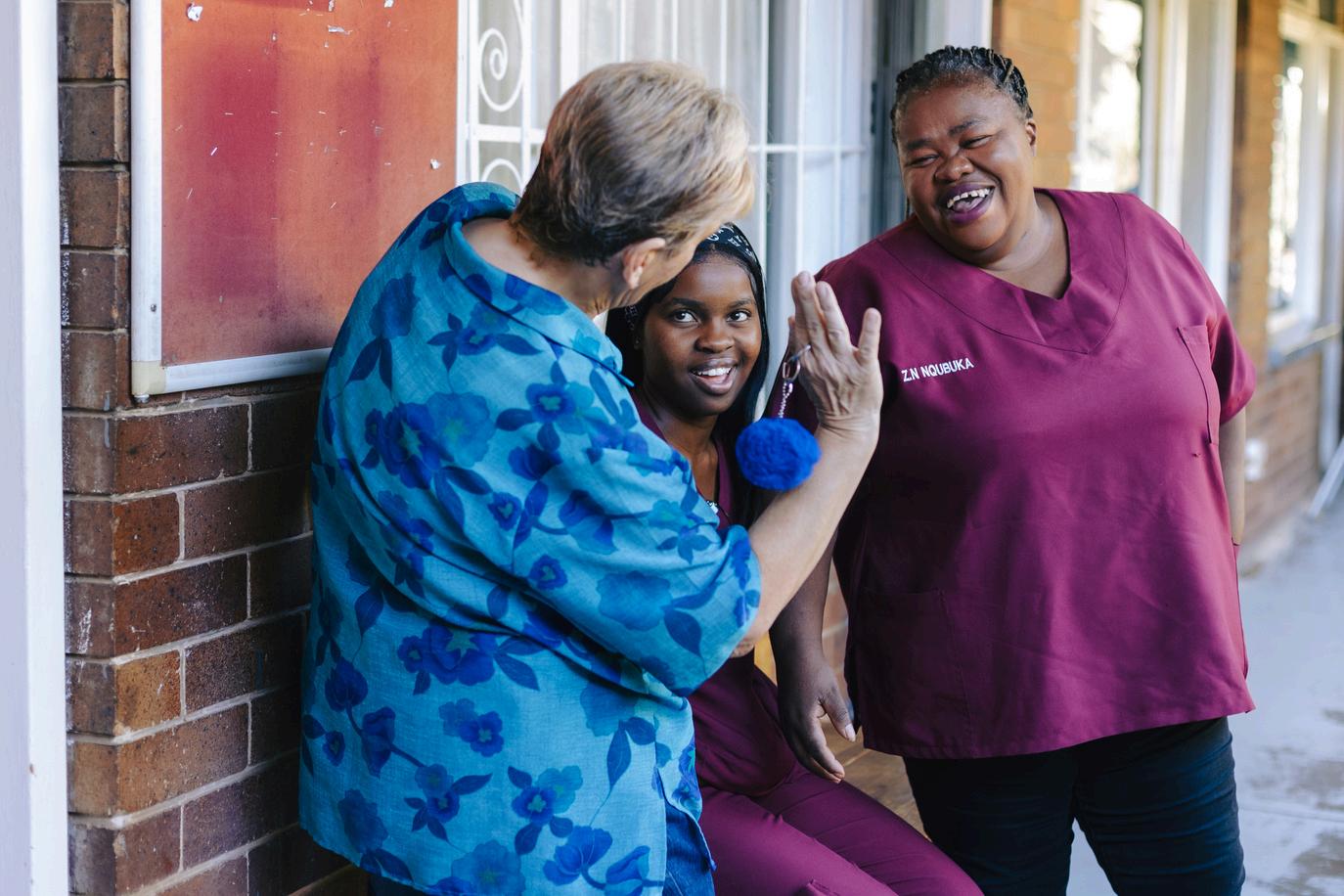
A joint webinar on Thursday, 23 October 2025 at 9 AM, with Tabvuma Mental Health, focused on “Culturally safe and responsive mental health care: Lessons from Australia and South Africa”. The webinar will share practical examples of how culturally grounded, respectful and community-centred care is put into practice, because culture matters in healing. You can register here.
SAFMH will host an event at our offices in Ferndale, Johannesburg, on Friday, 24 October 2025, where we will further unpack the link between GBV and mental health and highlight the need to prioritise sufficient mental health support for survivors of GBV.
Keep an eye on our social media platforms for all WMHM
